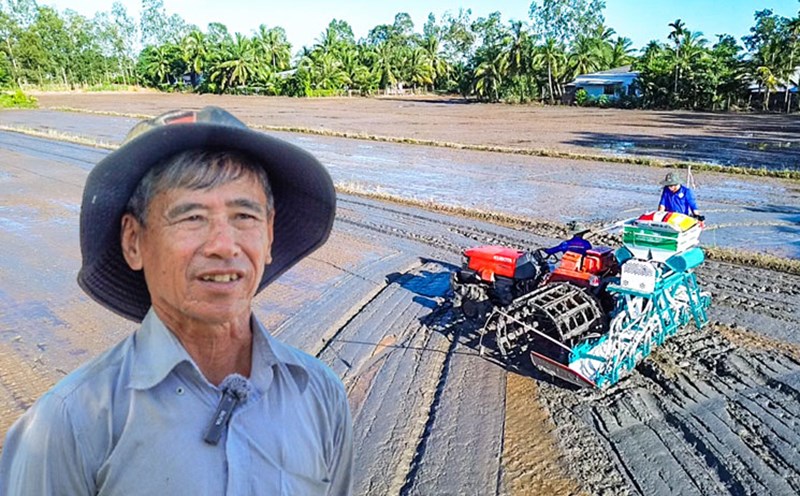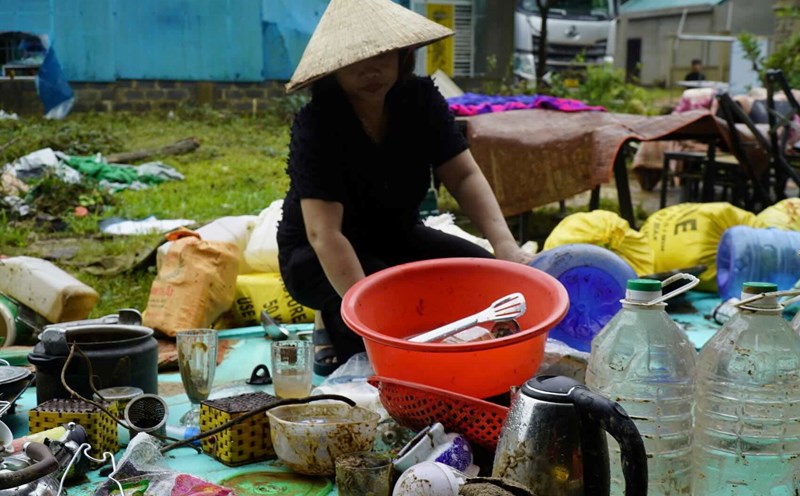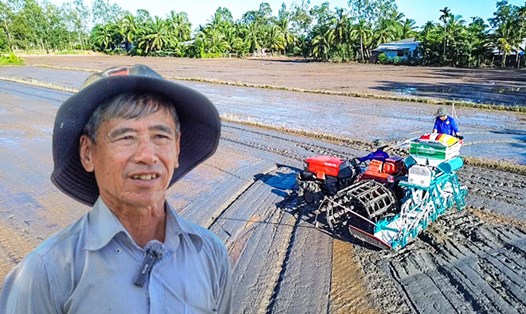On the afternoon of October 15, in Can Tho City, a conference was held to discuss solutions to promote the implementation of the Project on sustainable development of one million hectares of high-quality, low-emission rice cultivation associated with green growth in the Mekong Delta by 2030.
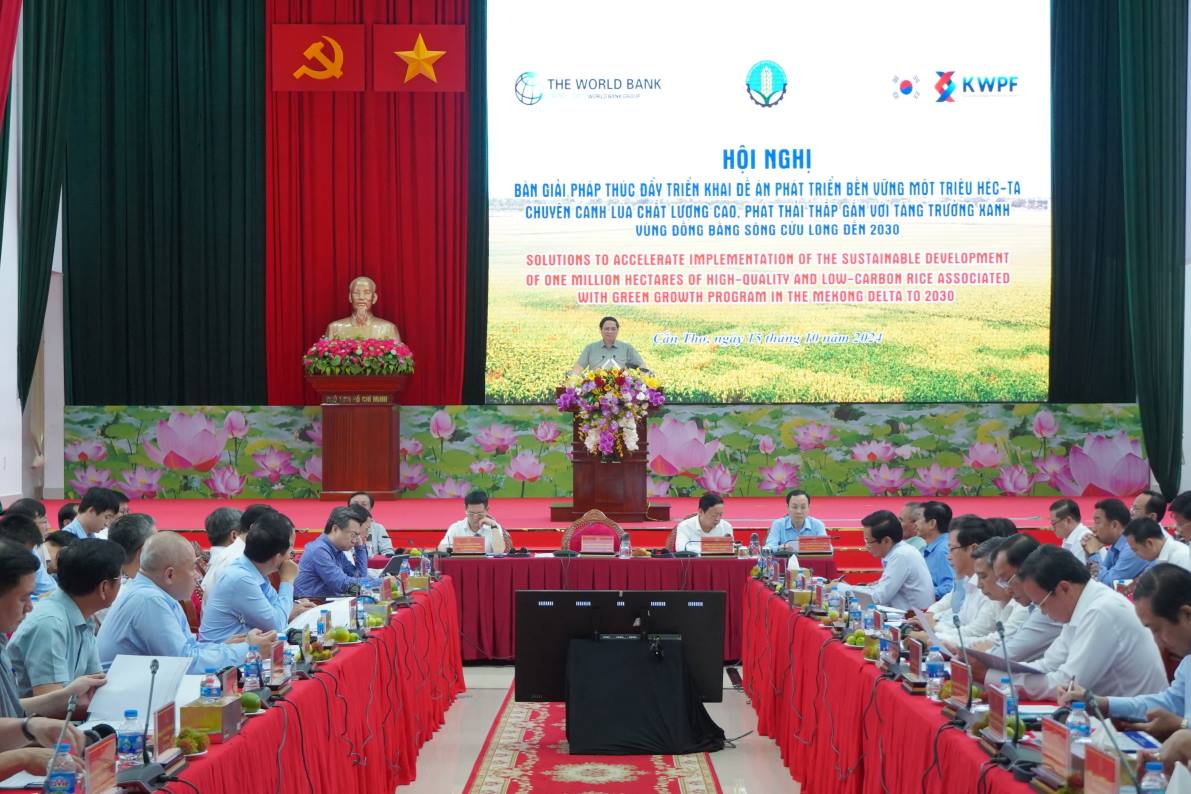
Attending the event were Politburo member, Prime Minister Pham Minh Chinh, Deputy Prime Minister Tran Hong Ha, Deputy Prime Minister Ho Duc Phoc, leaders of ministries, branches, central agencies and leaders of 12 provinces and cities in the Mekong Delta region.
Speaking at the conference, Prime Minister Pham Minh Chinh acknowledged the efforts of the Ministry of Agriculture and Rural Development and 12 localities in the Mekong Delta region in implementing the Project and achieving some initial results.
The Prime Minister stated that this is a very meaningful project for farmers in the Mekong Delta, for the rice industry and for the task of responding to climate change, aiming at the goal of safety from natural disasters, reducing greenhouse gas emissions, and bringing net emissions to "0" in accordance with Vietnam's commitment at the COP26 Conference.
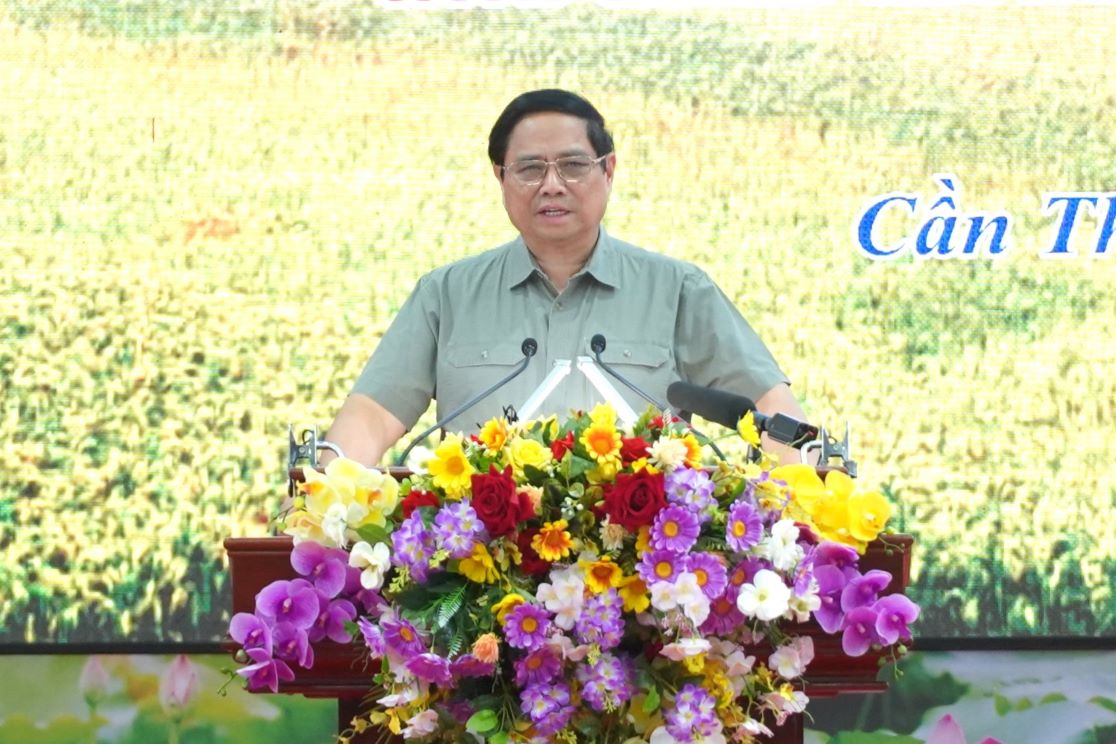
The Prime Minister also said that in today's era, with the trend of "eating well, eating cleanly", and huge competition, we must "breathe new life" into the agricultural sector, the rice sector in the Mekong Delta, the largest agricultural production region of the country.
The Prime Minister stated that rice is an advantageous commodity of our country; rice production not only plays an essential role in ensuring national food security and social stability, but is also an important source of income for tens of millions of Vietnamese farming households, while promoting exports, contributing to ensuring global food security, and enhancing Vietnam's position and prestige in the international arena.
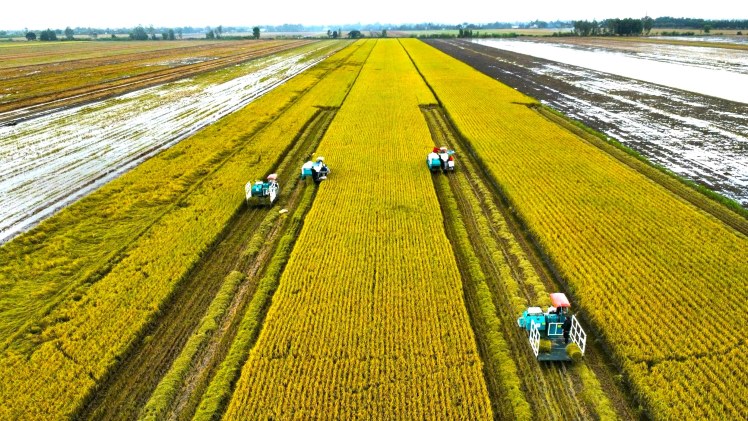
Deputy Minister of Agriculture and Rural Development Tran Thanh Nam said that the project is divided into 2 phases, phase 1 (2024-2025) focuses on 200,000 hectares with conditions for production infrastructure and capacity of cooperatives in production and consumption linkage with enterprises to achieve the criteria of high-quality, low-emission rice; phase 2 (2026-2030) focuses on investing in completing infrastructure and continuing to improve the capacity of the entire system to expand an additional 800,000 hectares of high-quality, low-emission rice.
The Ministry has worked with 12 provinces to review the project implementation area, ensuring compliance with the planning of the province and the Mekong Delta region; reviewed the entire current status of production infrastructure in the project area, especially irrigation infrastructure to meet the requirements of proactive irrigation, infrastructure to support transportation, and synchronous mechanization to create favorable conditions for the application of technical processes for high-quality, low-emission rice production.
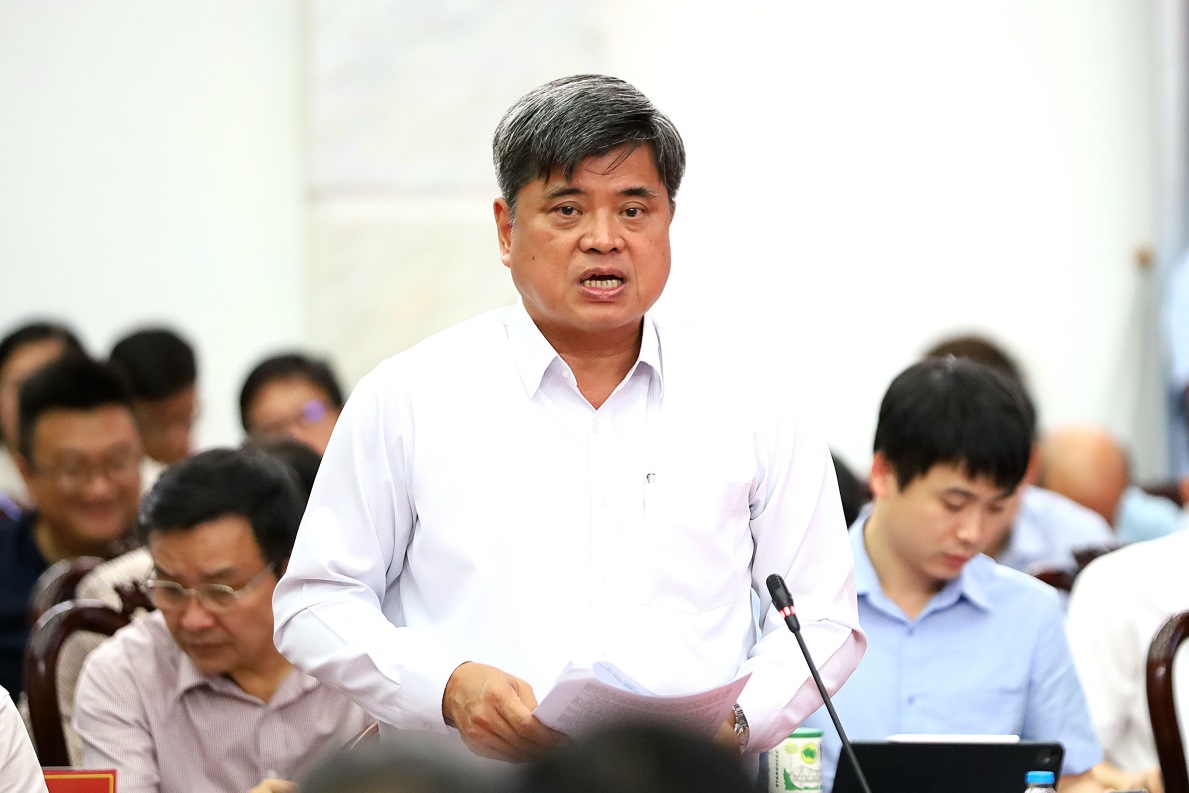
According to Deputy Minister Tran Thanh Nam, the Ministry has worked with localities and the International Rice Research Institute to implement 7 pilot models in 5 provinces and cities: Can Tho, Dong Thap, Kien Giang, Tra Vinh, and Soc Trang.
Currently, 4/7 pilot models of the summer-autumn crop in 2024 have reported very positive results, specifically: reducing costs by 20-30%; increasing productivity by 10%; increasing farmers' income by 20-25%, reducing an average of 5-6 tons of CO2 equivalent per hectare and all harvested rice output has been registered by businesses for purchase with a purchase price 200-300 VND/kg higher. The results have created great encouragement for farmers and cooperatives to trust and continue to actively participate in the Project.
Based on the implementation of pilot models, the Ministry of Agriculture and Rural Development has coordinated with localities and experts from the World Bank and the International Rice Institute to build a system for measuring, reporting and assessing emissions in accordance with international standards, to have a scientific basis for applying measurements to the entire area participating in the Project.
With the initial positive results of the pilot models, and the excitement and support of many farming households and rice cooperatives in the region, the Ministry has agreed with localities to continue to replicate sustainable farming models and reduce emissions in all 12 provinces and apply them immediately in the autumn-winter crop of 2024 and winter-spring crop of 2024-2025.

